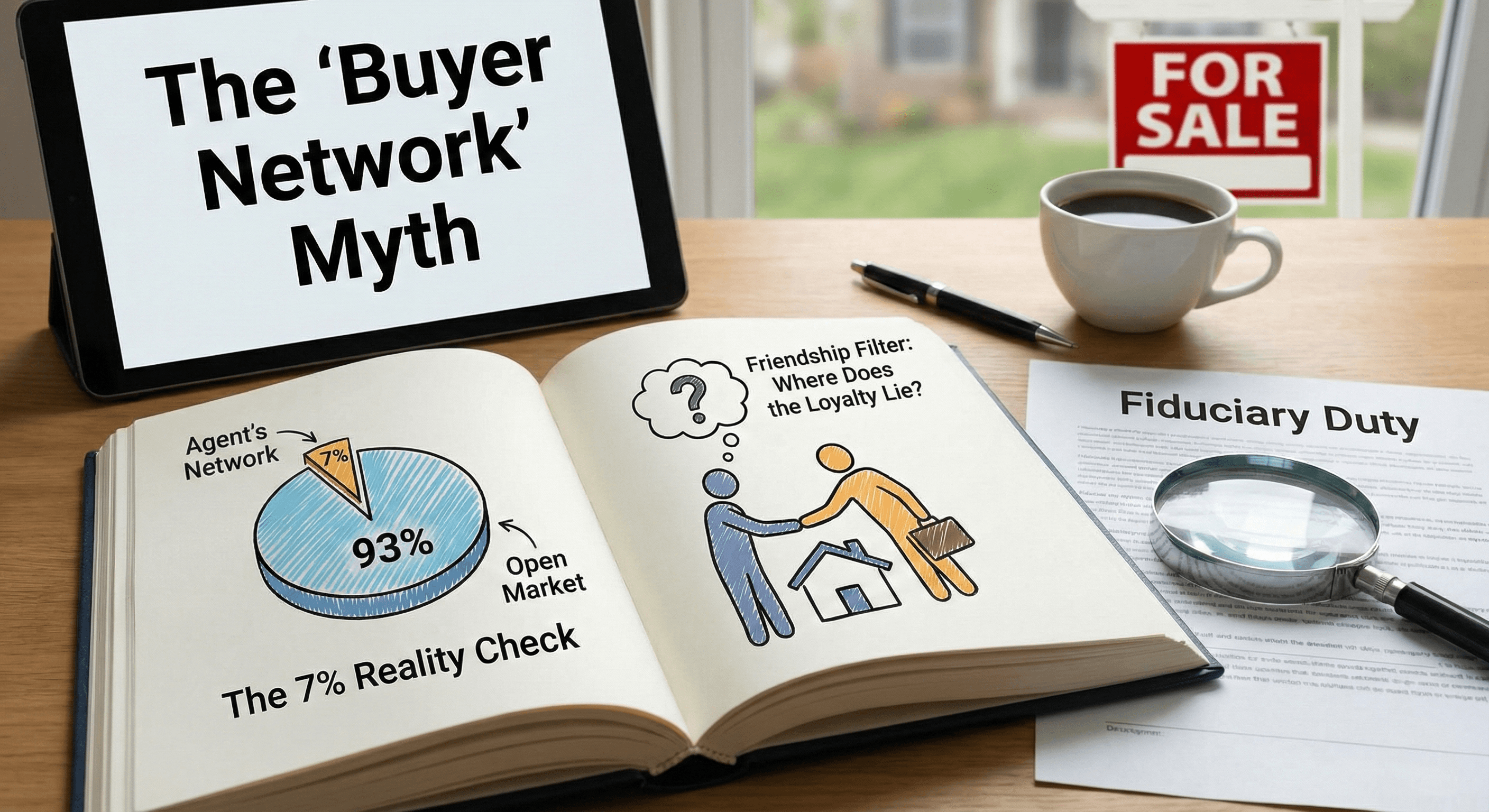Sep 9, 2025
The Trust-Verify Framework
The issue isn't blind trust. It is understanding what to question and how. There is a profound difference between productive strategic dialogue and destructive tactical interference.
Productive engagement focuses on outcomes:
"What does the market feedback tell us about our positioning?"
"How does current buyer behavior align with our pricing strategy?"
"What adjustments would optimize our competitive position?"
Destructive interference focuses on activities:
"Why haven't you called that agent back yet?"
"We should do another open house this weekend"
"I think we need different photos"
One treats your agent as a strategic partner whose expertise you're leveraging. The other treats them as an employee whose every move needs supervision. The ROI difference between these approaches is measurable in tens of thousands of dollars.
The Hiring Paradox
If you find yourself constantly wanting to override your agent's judgment, you have discovered a fundamental problem, but it is not what you think. Either you hired someone whose strategy you don't actually trust, or you hired someone who never articulated a strategy worth trusting.
Most seller-agent relationships fail at the interview stage. Sellers ask about commission rates and marketing plans instead of methodology and measurement. They evaluate personality over performance, proximity over proof. Then they wonder why they feel compelled to manage someone they're paying to manage their largest transaction.
The agents worth hiring can answer these questions:
"Walk me through your ROI methodology for improvement recommendations"
"How do you measure success beyond 'sold'?"
"Show me your last five transactions with benchmark analysis"
"What market indicators drive your pricing recommendations?"
If your agent couldn't answer these during the interview, you hired hope, not expertise. And hope isn't a strategy—it's an expensive wish.
The Strategic Partnership Model
In my practice, clients who achieve optimal outcomes share one characteristic: They trust the process they vetted, not the person they like. They chose me not because I'm charming at listing presentations but because I can document how $32,000 strategic investments returned $400,000, why certain market timing captures 18-27% premiums, and which buyer psychology triggers drive competitive bidding.
When challenges arise, and they do in every market, these clients engage at the strategic level:
Reviewing quantitative feedback from showings
Analyzing competitive positioning shifts
Adjusting tactical execution based on measured results
Maintaining discipline when patience is profitable
They don't confuse activity with progress or worry with wisdom. They hired a methodology, they trust the methodology, and they let the methodology work.
The Bottom Line: Alignment or Anxiety
Your choice is simple but not easy: Hire expertise and trust it, or hire order-takers and manage them. The middle ground, hiring expertise and then undermining it, is where fortunes are lost to ego.
In challenging markets, the properties that succeed aren't necessarily the best ones. They are the ones with the best executed strategies. And strategies only work when they are allowed to work, when tactical discipline isn't sacrificed to emotional impulse, and when the expertise you are paying for is actually deployed.
If you are constantly feeling the need to direct your agent's actions, you are either working with the wrong agent or you are the wrong client. Either way, the solution isn't more oversight. It is better alignment from the start.
Markets don't determine outcomes. Strategy does. But only if you let it.
Before you hire your next agent, arm yourself with the right questions: The Strategic Questions That Reveal True Expertise →





